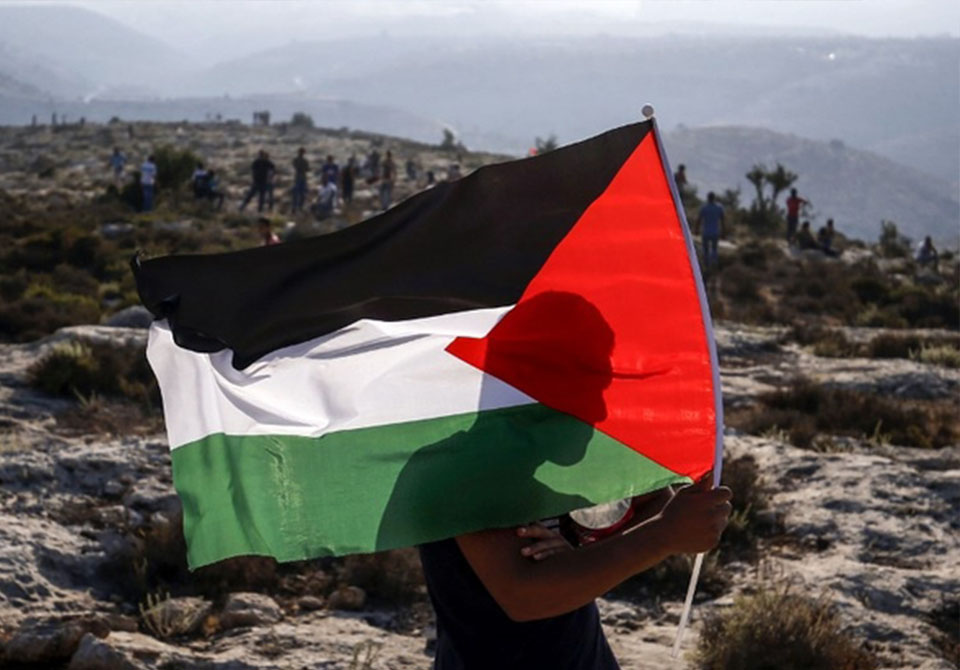The answer to Israeli and US attacks on Palestine in 2019. Worldwide solidarity

Palestinians will continue to demand liberation - and that cannot occur until they are allowed to return to their homeland
2018 was a year of increased attacks on the Palestinian cause, particularly on Palestinian refugees.
US President Donald Trump made a series of decisions further demonstrating that Palestinians cannot count on the US to be a mediator in the Israeli-Palestinian conflict. At the same time, US and Israeli machinations over the past 12 months showed that the erasure of the Palestinian right of return is central to their long-term strategy.
On the one hand, Palestinians continue to suffer at the hands of excessive force by the Israeli military. Since the Great March of Return protests began in March, the Israeli army has killed more than 230 people and injured more than 25,000 in Gaza alone.
On the other hand, the attempted dismantling of the UN agency for Palestinian refugees, UNRWA, by the US and Israel threatens to leave more than five million Palestinian refugees struggling for basic and fundamental human rights.
Catastrophic funding cuts
In addition to Trump’s catastrophic funding cuts to UNRWA, leaked emails reportedly showed that his senior adviser, Jared Kushner, pressured Jordan to strip its two million registered Palestinians of their refugee status so that UNRWA’s operations in the country would end.
In working to terminate UNRWA, the US and Israel appear to be attempting to dissolve Palestinians’ refugee status and to deny refugees a claim to return to present-day Israel or the occupied territories. In response to the US decision to cease funding UNWRA, the agency’s commissioner-general, Pierre Krahenbuhl, said that millions of Palestinian refugees “cannot simply be wished away”.
The policy direction of the US and Israel towards Palestinian refugees is unambiguous: After decades of failing to solve the problem through diplomacy, they are now attempting to end the Palestinian refugee problem through budget cuts and discriminatory legislative channels.
According to UNRWA, the US aid cut has caused the agency’s biggest funding crisis since its inception in 1949. In 2017, the US was UNRWA’s top donor, giving more than $350m. Based on the events of 2018, it appears the parameters of the forthcoming US “deal of the century” will be unlikely to cater to Palestinian interests.
Worldwide solidarity
To challenge the “deal of the century”, a worldwide response of solidarity with the Palestinian people is crucial. Grassroots campaigns of boycott, divestment and sanctions (BDS), along with pressure from civil society organisations, are the most effective tool to hold the Israeli government accountable. Airbnb’s withdrawal of West Bank settlement listings is a clear example of how effective these movements can be.
The UN must publish in full the names of businesses operating in Israeli settlements in the West Bank, as recommended in a 2016 Human Rights Council resolution.

US cuts to UNRWA, the UN agency for Palestinian refugees, have caused a massive funding crisis (Reuters)
While Palestinians in 2019 can expect the support of civil society around the world, it is unlikely to be reflected in the policies of most Western governments. The rise of far-right leaders will continue to help the Israeli government forge alliances that sustain its status as a major partner with Europe, especially in the arms trade.
In a recent meeting with British International Trade Secretary Liam Fox, Israeli Prime Minister Benjamin Netanyahu proudly stated that the UK is Israel’s largest trade partner in Europe. It remains to be seen whether Brexit will bring the UK closer to Israel, or whether it will be an opportunity to build a policy different to the one currently implemented by the EU.
The role of the UK
With the likeliness increasing of a UK general election in 2019, the prospect of a government led by Jeremy Corbyn inspires a glimmer of hope for Palestinian aspirations. Such a change could help to break the current impasse of total Israeli domination.
As Ireland edges closer to legislating a landmark bill criminalising trade with all goods from illegal Israeli settlements in the occupied territories, a future British government should not hesitate to follow suit.
In 2019, the Palestinian Authority (PA) will face one of the most significant challenges since its inception, as all routes to strike a viable deal have been blocked by the far-right camps in Israel and the US, which are committed to enforcing a deal rather than negotiating it.
This begs the crucial question: what is the Palestinian strategy in such a case? Chief Palestinian negotiator Saeb Erekat was unable to answer this question at a recent forum in Doha, suggesting that the real challenge for Palestinians in 2019 will be the limitations of the PA to generate an alternative approach for the struggle.
Restitution and compensation
New threats to Palestinian refugees will continue to emerge from the US administration and the Israeli government, which both seek to permanently remove the right of return from negotiations. Yet the Palestinian people must not lose sight of what’s at stake - and they will not stop fighting for their right of return.
For 70 years, Palestinian refugees have not given up on their hope to one day return to their homeland. This right was enshrined in international law and cannot be negotiated away. Palestinians should not be asked to accept a life of exile, occupation and injustice.
Support for UNRWA remains vital, but this must be complemented by initiating a process of refugee return, restitution and compensation. Like any other people, Palestinians will continue to demand liberation - and that cannot occur until they are allowed to return to their homeland.
- Tarek Hamoud is the general director of the Palestinian Return Centre.
The views expressed in this article belong to the author and do not necessarily reflect the editorial policy of Middle East Eye.
Photo: A protester waves a Palestinian flag during a demonstration in the occupied West Bank on 4 September (AFP)
Source: Middle East Eye

WRITE YOUR COMMENT